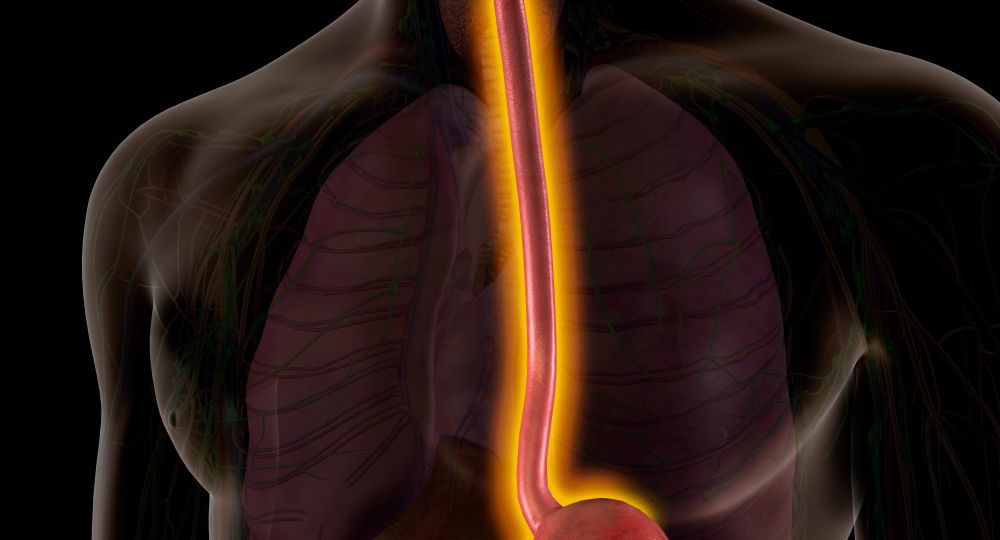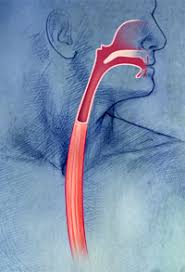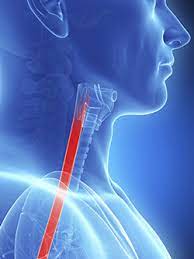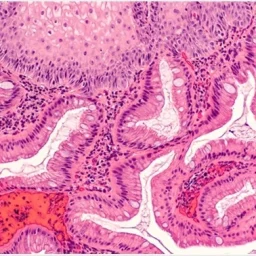
Physical Impact of Esophageal Diseases
1. Dysphagia (Difficulty Swallowing)

One of the most distressing symptoms of esophageal disorders is difficulty swallowing, known as dysphagia. Whether caused by a narrowing of the esophagus, inflammation, or a motility disorder like achalasia, dysphagia can make eating and drinking challenging.
- Effect on Daily Life: Dysphagia can lead to a fear of eating, reduced food intake, and, in some cases, malnutrition. People may avoid certain foods or liquids that are difficult to swallow, leading to a limited and sometimes monotonous diet.
- Weight Loss and Malnutrition: Chronic difficulty swallowing can lead to significant weight loss and nutritional deficiencies, which can further impact overall health and energy levels.
2. Pain and Discomfort
Esophageal pain, often caused by acid reflux, esophagitis, or esophageal spasms, can have a significant impact on an individual’s quality of life.
- Heartburn: The burning sensation often associated with GERD can be severe and persistent, making it difficult for individuals to enjoy meals or even relax comfortably after eating.
- Chest Pain: Esophageal spasms or advanced esophageal cancer may cause chest pain, which can be mistaken for a heart attack. This pain can cause anxiety and may interfere with sleep, work, and physical activity.
3. Chronic Cough and Hoarseness
People with GERD may experience a chronic cough or hoarseness as acid reflux irritates the throat and vocal cords. This symptom can be particularly disruptive in social settings and during sleep, leading to fatigue and frustration.
- Social Isolation: Constant coughing or hoarseness can be embarrassing, leading people to limit their interactions with others, affecting their social life and emotional well-being.
4. Regurgitation
Regurgitation, or the sensation of food or acid coming back up into the throat, is a common symptom of GERD and other esophageal disorders. It can cause discomfort and a persistent sour taste in the mouth.
- Impact on Sleep: Regurgitation is often worse when lying down, leading to sleep disturbances. Poor sleep quality can affect concentration, mood, and overall health.
5. Difficulty Eating Certain Foods
Esophageal diseases can make it challenging to eat certain foods, especially those that are hard to swallow, like meat, bread, or citrus fruits. Over time, individuals may develop food aversions or restrict their diet to foods that are easier to consume, impacting their enjoyment of meals.
- Nutritional Consequences: A restricted diet can lead to poor nutrition and a lack of variety in the diet, which may contribute to other health problems like vitamin deficiencies or digestive issues.
Emotional and Psychological Impact of Esophageal Diseases
1. Anxiety and Stress

The chronic nature of many esophageal conditions, particularly those involving reflux, pain, or swallowing difficulties, can lead to significant anxiety and stress.
- Fear of Eating: The fear of experiencing pain or regurgitation can cause individuals to avoid meals, leading to further weight loss, nutritional deficiencies, and increased anxiety about eating.
- Health Anxiety: Individuals with esophageal cancer or other severe conditions may experience health-related anxiety, worrying about the progression of their disease and the impact it will have on their long-term well-being.
2. Depression
Living with a chronic illness like GERD or esophageal cancer can contribute to feelings of hopelessness, sadness, and depression. Persistent symptoms like pain, difficulty eating, and sleep disturbances can diminish an individual’s quality of life and sense of well-being.
- Social Withdrawal: The discomfort and embarrassment associated with esophageal symptoms, such as excessive coughing, regurgitation, or hoarseness, can lead to social withdrawal. This isolation can contribute to feelings of loneliness and exacerbate depression.
3. Sleep Disturbances
The physical symptoms of esophageal diseases—such as acid reflux, regurgitation, and pain—are often worse at night, leading to poor sleep quality.
- Impact on Mental Health: Chronic sleep deprivation can exacerbate mood disorders, such as anxiety and depression, and contribute to a decline in cognitive function. This can make it even more difficult for individuals to cope with the day-to-day challenges of living with an esophageal condition.
Social Impact of Esophageal Diseases
1. Difficulty in Social Situations
People with esophageal diseases may avoid social events that involve food, such as family dinners, social gatherings, or parties, because of difficulty swallowing, fear of regurgitation, or the need to follow specific dietary restrictions.
- Embarrassment and Stigma: Symptoms like excessive coughing, regurgitation, or belching can be embarrassing in public settings. Individuals may worry about being judged or misunderstood, leading to social isolation.
2. Workplace Challenges
Esophageal diseases can impact an individual’s ability to perform at work, especially if their symptoms are severe or interfere with focus, energy levels, or physical activity.
- Absenteeism: Chronic symptoms can lead to increased absenteeism, which may affect career prospects and job performance.
- Decreased Productivity: Persistent pain, fatigue, and sleep disturbances can decrease concentration and productivity, potentially leading to challenges at work.
Long-term Impact of Severe Esophageal Diseases
In cases where esophageal diseases are left untreated or poorly managed, such as in esophageal cancer or chronic GERD, the long-term impact on quality of life can be profound.
- Esophageal Cancer: This aggressive disease can lead to severe complications, such as difficulty swallowing, significant weight loss, and the need for major treatments like surgery, chemotherapy, or radiation. The impact on daily activities, social life, and emotional well-being can be overwhelming.
- Chronic GERD: Untreated GERD can cause long-term damage to the esophagus, leading to conditions like Barrett’s esophagus, which increases the risk of esophageal cancer. Chronic GERD can also lead to chronic pain and discomfort, which can significantly reduce the overall quality of life.
Managing the Impact of Esophageal Diseases
1. Medical Treatment
Managing the underlying esophageal condition is crucial in reducing its impact on quality of life. Treatment options vary depending on the condition and may include:
- Medications: Proton pump inhibitors (PPIs) and H2 blockers can help control acid production in GERD, while other medications may address symptoms like pain, inflammation, or infection.
- Surgery: In some cases, surgery may be required to repair a damaged esophagus, treat cancer, or alleviate symptoms like dysphagia.
2. Lifestyle Changes
Lifestyle modifications can greatly improve the symptoms of esophageal diseases and reduce their impact on quality of life.
- Dietary Adjustments: Eating smaller, more frequent meals, avoiding foods that trigger symptoms, and maintaining a healthy weight can help reduce GERD symptoms and prevent further damage to the esophagus.
- Positioning During Sleep: Elevating the head during sleep and avoiding meals before bedtime can reduce the frequency of nighttime acid reflux.
- Stress Management: Techniques such as yoga, meditation, and deep breathing can help manage the emotional and psychological toll of esophageal diseases.
3. Support Networks
Support from healthcare providers, family, and friends is essential for individuals coping with esophageal diseases. Psychological counseling, support groups, and online forums can provide a safe space for patients to share their experiences, exchange advice, and receive emotional support.
Esophageal diseases can have a profound impact on a person’s physical, emotional, and social quality of life. Symptoms such as difficulty swallowing, pain, regurgitation, and sleep disturbances can significantly affect daily functioning, work, and social activities. The emotional toll of living with a chronic condition, including anxiety, depression, and social isolation, adds further complexity to managing these diseases.
By understanding the effects of esophageal disorders on quality of life and implementing effective treatments, lifestyle modifications, and emotional support, individuals can manage their symptoms and maintain a good quality of life. Early diagnosis, proper medical care, and a proactive approach to lifestyle changes are key to minimizing the impact of esophageal diseases and improving overall well-being.



 Afrikaans
Afrikaans Albanian
Albanian Arabic
Arabic Azerbaijani
Azerbaijani Belarusian
Belarusian Bosnian
Bosnian Bulgarian
Bulgarian Croatian
Croatian Czech
Czech Dutch
Dutch English
English French
French German
German Hungarian
Hungarian Italian
Italian Kazakh
Kazakh Kurdish (Kurmanji)
Kurdish (Kurmanji) Kyrgyz
Kyrgyz Macedonian
Macedonian Persian
Persian Polish
Polish Portuguese
Portuguese Romanian
Romanian Russian
Russian Serbian
Serbian Slovak
Slovak Slovenian
Slovenian Spanish
Spanish Ukrainian
Ukrainian Uzbek
Uzbek